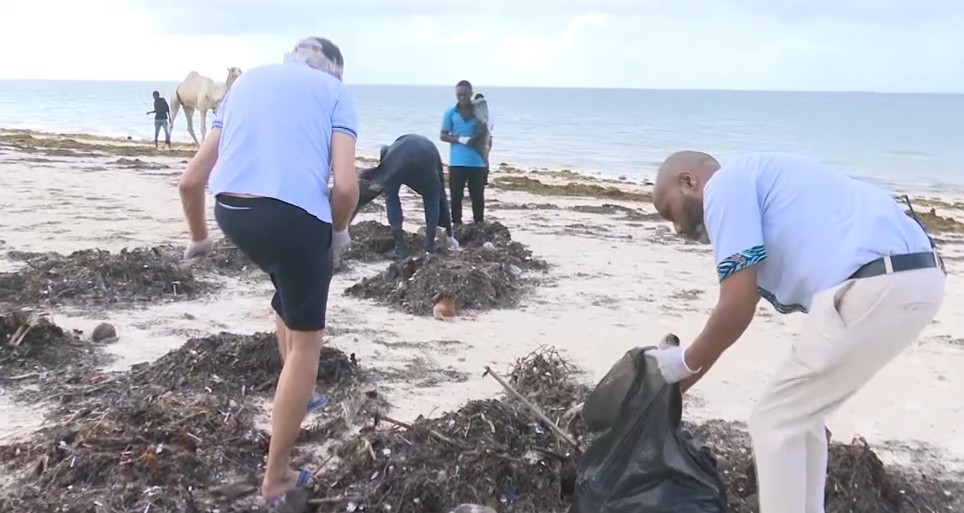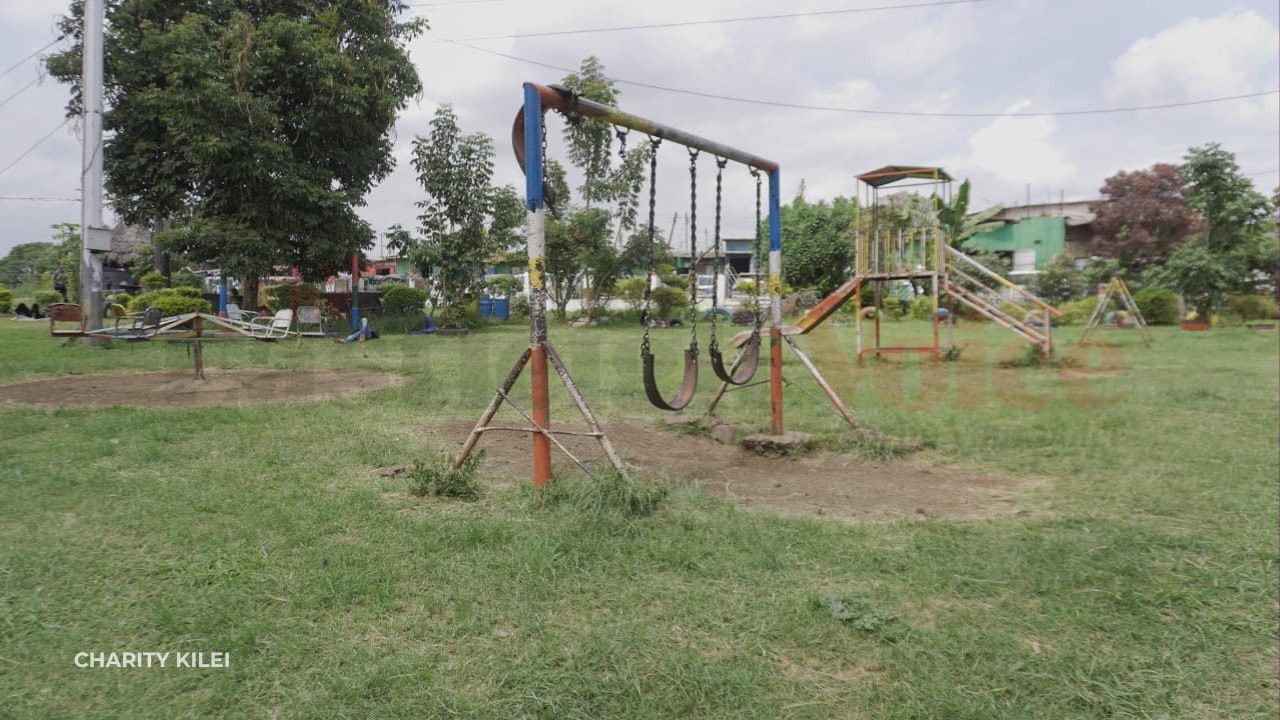Coast hoteliers urge tougher anti-pollution measures to protect marine life and boost tourism

The industry stakeholders voiced concerns over the persistent dumping of waste, including disposable diapers, plastic bottles, and microplastics along the coastline, which they argue is deterring both domestic and international tourists from visiting the area.
Coast hoteliers are urging enhanced coordination between the national and county governments to enforce stricter policies aimed at curbing beach and ocean pollution, saying the state of coastal cleanliness is increasingly threatening both marine biodiversity and tourism revenue.
The industry stakeholders voiced concerns over the persistent dumping of waste, including disposable diapers, plastic bottles, and microplastics along the coastline, which they argue is deterring both domestic and international tourists from visiting the area.
More To Read
- Tide of change: Coastal women demand bigger role in blue economy
- Kenya unveils 2024–2030 disaster risk strategy to protect lives and boost resilience
- Kenya elected to UN Tourism Executive Council
- Kenya cuts environment budget to Sh103.8 billion despite climate change pressures
- Thousands join plastic pollution fight as Diani Beach festival kicks off in Kwale
- Climate inaction threatens global food security as farmland suitability declines, warns FAO report
Operations Manager at Couwries Shells Beach Apartments, Peter Masanju, expressed deep frustration over the ongoing pollution, attributing it to lax enforcement and inadequate waste management infrastructure.
“You find items like pampers and diapers dumped carelessly on the beaches. If we had proper legislation and regular patrols to regulate such practices, we could significantly prevent this kind of pollution,” he said.
Public awareness campaigns
Masanju called for immediate action through community education and sustained public awareness campaigns.
“We are really trying to sensitise the public, but there needs to be a broader effort. We are proposing that waste bins be strategically placed along the beaches. This could help reduce the frequency of beach clean-ups in the future.”
He emphasised that tourism, particularly marine-based tourism, plays a critical role in the livelihoods of coastal residents.
“We depend on tourism, and a lot of that involves the marine park. We are proud to have national parks, and we have been working closely with the Kenya Wildlife Service (KWS). So, if we had proper legislation to prevent pollution, we could also better protect marine life.”
 Couwries Shells Beach Apartments Operations Manager Peter Masanju during a press briefing on concerns about ocean and beach pollution. Photo: Farhiya Hussein)
Couwries Shells Beach Apartments Operations Manager Peter Masanju during a press briefing on concerns about ocean and beach pollution. Photo: Farhiya Hussein)
Marine degradation
The calls for intervention come as climate change and marine degradation continue to dominate global environmental discussions.
Locally, the hospitality sector is increasingly bearing the brunt of unchecked pollution, which stakeholders say undermines Kenya’s efforts to brand itself as a top ecotourism destination.
Mark Quagebeur, a long-standing investor in the coastal hotel industry, also echoed the urgency of government intervention.
He painted a grim picture of the current situation, recounting what prompted his team to take matters into their own hands.
“We saw our beaches were very dirty, microplastics and everything you can imagine that does not belong at the beach. We then decided we needed to do something. Now it is two years of us doing beach clean-ups, where every two weeks we collect all the rubbish from the beaches,” said Quagebeur.
Despite these volunteer efforts, Quagebeur warned that self-initiated clean-ups are not a sustainable long-term solution.
“Our oceans are being polluted, and we need good marine life. If we don’t do anything, we will destroy our whole planet,” he stated firmly.
According to environmental experts, marine pollution along Kenya’s Indian Ocean coast is primarily driven by urban waste discharge, unregulated human activities along the beach, and plastic waste from inland that is swept into the ocean.
Tourism stakeholders argue that while local communities and businesses have made commendable efforts through clean-up initiatives and awareness campaigns, lasting impact can only be achieved through legislative action and institutional support.
“This is not just about beautifying the beach for the sake of it. It is about protecting an ecosystem that directly feeds our economy and supports thousands of families. Without immediate, coordinated action, the cost economically and environmentally will be too high to bear,” said Masanju.
Top Stories Today















































